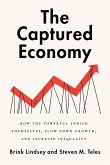Austerity became the predominant fiscal policy response to the Great Recession in Europe. After a brief period of 'emergency Keynesianism' from 2008 to 2010, even the centre-left abandoned plans for deficit spending and accepted austerity as the dogma of the day. In this book, Björn Bremer explains how this came about and explores its political consequences, combining qualitative and quantitative methods and drawing on a wide range of empirical evidence to study both the demand- and supply-side of politics. Based on this evidence, the book argues that a complex interaction of electoral and ideational pressures pushed social democratic parties towards orthodox fiscal policies. As government debt became a taboo following the Greek sovereign debt crisis, social democratic parties endorsed austerity to increase their perceived economic competence and fiscal credibility. This decision was legitimized by economic ideas inspired by supply-side economics, which had become popular among social democrats at the end of the twentieth century. Although the book shows that social democratic austerity was not inevitable, powerful feedback effects of the Third Way thus trapped and divided the centre-left during the crisis. This undermined the ability of social democratic parties to oppose austerity and eventually contributed to their electoral crisis in the shadow of the Great Recession.
Dieser Download kann aus rechtlichen Gründen nur mit Rechnungsadresse in A, B, BG, CY, CZ, D, DK, EW, E, FIN, F, GR, HR, H, IRL, I, LT, L, LR, M, NL, PL, P, R, S, SLO, SK ausgeliefert werden.









